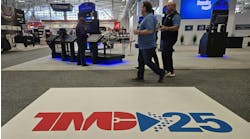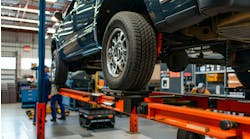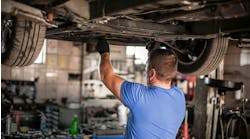We’ve all been there. I would wager we’ve all done it. When it comes time to get an oil change or replace our windshield wipers, we want to go for the store brand, not the genuine replacement part. It’s cheaper. Isn’t it? It’s just as good. Right?
I’m not an automotive expert, so I’m not going to debate the merits of saving a few bucks on windshield wipers. I would, however, like to point out a few key points to consider when you are purchasing replacement parts for your compressor.
- Efficiency: No doubt a key factor when you were purchasing your compressor was energy efficiency. You did the research, looked at the CAGI datasheets, and compared performance. That compressor was tested as it was packaged by the manufacturer using the manufacturer’s original parts. This may not seem like a big deal, but keep in mind that every component inside the compressor is crucial to its performance, thus its efficiency. For example, intake filters are susceptible to pressure drop; every 2 psi in pressure drop costs 1 percent of compressor horsepower in efficiency. If you use an aftermarket filter, you might not get the compressor efficiency you are expecting. And that will cost you money—possibly more than you are saving by going with the cheaper part.
- Service Intervals: Your unit came with a manual that has a host of useful information from the manufacturer—including recommended service intervals. Those intervals are based on the extensive testing done using their original parts included in the machine, not aftermarket ones. You might be ok using the same guidelines, but there is really no way of knowing, simply because the manufacturer didn’t test the unit using those aftermarket parts.
- Quality risks: The material compatibility of the aftermarket parts has not been tested with the compressor. Neither has the durability. Quite often we see new issues develop, for example higher oil carry over from using a sub-par replacement separator element. Other issues such as higher pressure losses after shorter operating periods, compromised machine safety, and air quality not being met are also common. Further, depending on what your manufacturer’s stated warranty is, using aftermarket parts can void it.
To be fair, there are quality aftermarket parts manufacturers out there—their products, however, have just not been thoroughly tested with the compressor, which can lead to problems and concerns. Be careful and be aware. Your best bet is to contact the compressor manufacturer and go with their genuine replacement parts. I didn’t really save any money by getting the store brand windshield wipers. They lasted maybe four months. The genuine replacement part wipers that are now on my car have lasted more than a year and they only cost a few dollars more. They also work better.
I guess that goes to show that you get what you pay for. Pay now or pay way more later.



